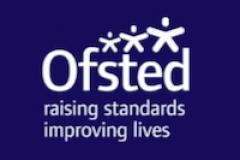
Cheshire East Council has revealed the £70m impact of Covid-19 on its finances – and renewed its call for the government to cover the full costs.
A report to the authority's cabinet spells out that the council faces additional cost pressures of £70m this year alone – a £10m increase on the original predicted figure of £60m – due to coronavirus.
Government emergency funding has so far provided £19.7m towards this.
The report outlines the work undertaken to support communities and businesses across the borough as government-directed restrictions are being lifted and the plans the council is developing to support longer-term recovery from the pandemic.
These include supporting affected businesses and town centres, developing regeneration projects to stimulate economic recovery and growth and attracting inward investment – as well as taking the opportunity to support 'greener' ways of working.
The sub-regional response to the pandemic is led by the Cheshire Local Resilience Forum, which includes Cheshire East Council, neighbouring authorities, the police, fire service, Public Health England and NHS.
Councillor Amanda Stott, Cheshire East Council cabinet member with responsibility for finance, said: "All councils are feeling the additional financial pressure of responding to the Covid-19 pandemic – and Cheshire East is no exception.
"The council now faces additional cost pressures of £70m due to Covid-19 this year alone. We welcome the additional funding from government provided to date – but it's estimated we need more than three times this amount to meet the full costs to the authority.
"The pressures locally come from additional costs including social care, mental health, personal protection equipment, transport, distribution of business grants and ICT. In addition, it is costing us more to maintain essential services, such as waste and recycling collections, while ensuring that social distancing is in place. We are also experiencing losses of income, such as from weddings and tourism, including visitors to Tatton Park."
The response phase is likely to continue for some time to come. In addition, the council is planning for potential second waves of the pandemic and/or localised outbreaks.
Cllr Stott added: "In February, Cheshire East approved a balanced budget for 2020/21 and we had plans in place to deliver this. However, Covid-19 has had a significant impact on every area of the council and it has changed things for all the residents, businesses and communities we serve.
"We do not yet know the lasting impact of the pandemic – but we do know that, even with anticipated government funding, we will experience unprecedented financial pressure this financial year and for years to come.
"In line with other councils, Cheshire East has lobbied the government to cover the full costs of Covid to local authorities, as originally promised. This work continues, supported by our colleagues in the Local Government Association and County Council's Network.
"We understand that the government will clarify the position on funding for councils soon and we will consider our next steps then, in order to be able to plan our financial future."
As part of its response to Covid-19 Cheshire East Council has already:
● Supported more than 3,600 people via its People Helping People initiative matching them with more than 1,300 volunteers;
● Supported more than 3,100 residents via its shielding hub and issued 283 emergency parcels of food and toiletries across the borough;
● Distributed more than 2.5 million items of personal protection equipment to key workers; and
● Distributed business support grants to more than 6,675 local businesses – totalling more than £81m to date.
A detailed report on the financial impact of the pandemic on the agreed budget for 2020/21 will be presented to cabinet in September and a meeting of full council in October.










Comments
Here's what readers have had to say so far. Why not add your thoughts below.
Every financial demand they make on central government is a demand for money out of our pay packets. Unfortunately with most of the country unproductive their cash cow has run dry. They're going to have to tighten their belts just like the rest of us.
Every financial demand they make on central government is a demand for money out of our pay packets. Unfortunately with most of the country unproductive their cash cow has run dry. They're going to have to tighten their belts just like the rest of us.